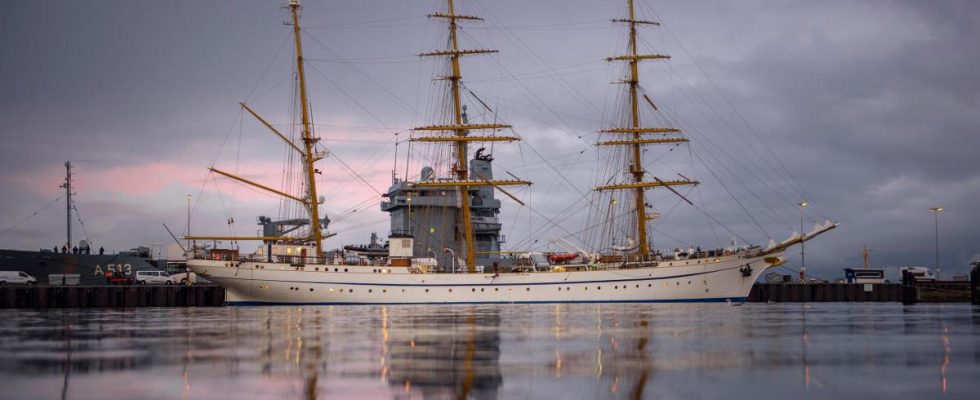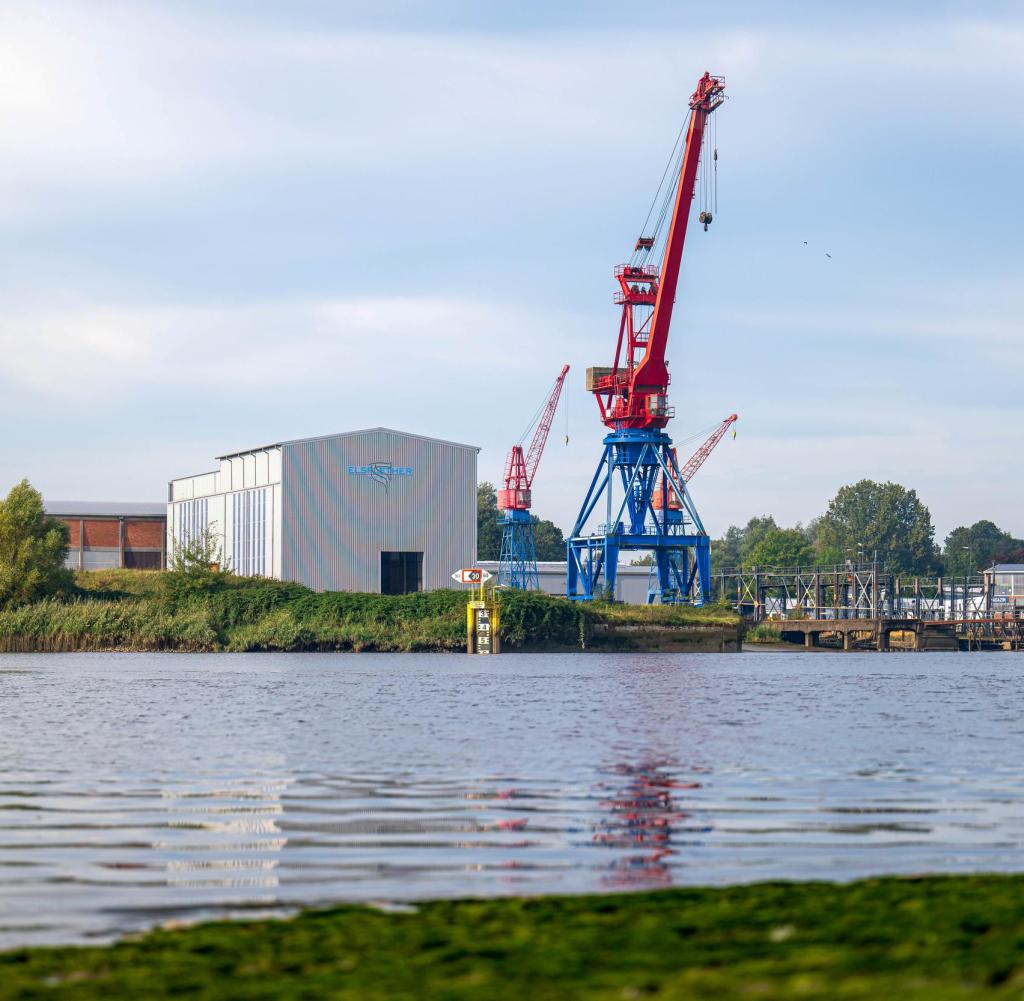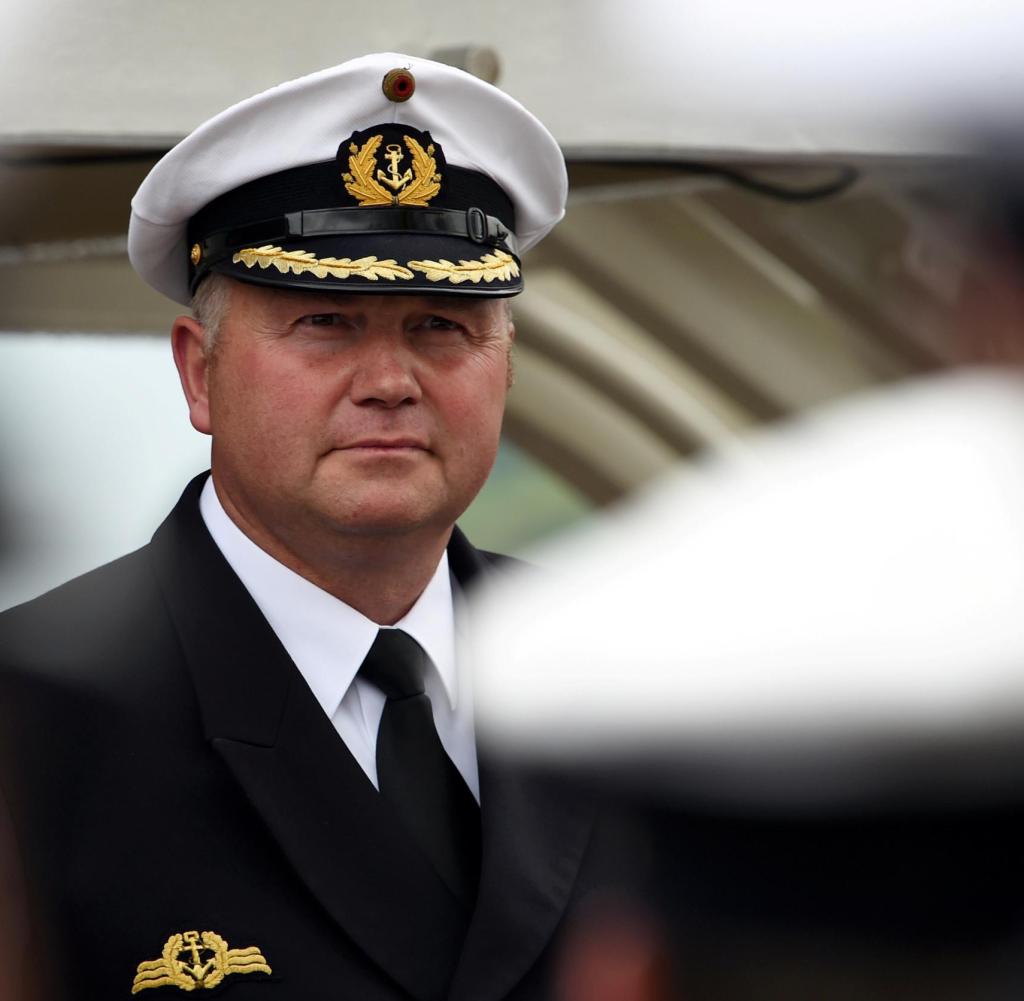An an autumn day in October 2016, Peter G. signed a contract that had serious consequences. His life plans collapsed, a company went bankrupt, and a minister had to defend herself against accusations of failure.
At first glance, it seemed like a completely normal transaction that he was doing: Peter G. bought a property in Varel, Lower Saxony, for 600,000 euros in order to build senior-friendly apartments there. The then 60-year-old civil servant only had one problem: he couldn’t raise the investment sum of 1.6 million euros – and no bank wanted to lend him the money.
But Peter G. knew where to get something. At the time, the Federal Navy’s “technical cost auditor” worked at the Elsfleth shipyard (EW), which was supposed to renovate the sailing training ship “Gorch Fock”. He was solely responsible for signing off the company’s invoices and checking their plausibility – a position that the Navy itself classified as particularly at risk of corruption.
Nevertheless, the technical government officer at the Wilhelmshaven naval arsenal went to the office of the shipyard board member Klaus Wiechmann and asked his first-name friend for financial support with his construction project. The two agreed that the company, whose invoices Peter G. had to check on behalf of the Navy, would make 400,000 euros available to it – and made it clear that this also involved the controller’s benevolence in the increase in repair costs the “Gorch Fock” went.
The ship was corroded by rust and, upon closer inspection, was more seriously damaged than expected. The costs rose from an original estimate of almost ten million euros to 135 million euros in the end.
The “Gorch Fock” is heading to the port of Rostock in 2022
Source: Jens Büttner/dpa
On December 1, 2016, the sum flowed into an account belonging to the accused. And because it worked so well the first time, Peter G. knocked on the board’s door again shortly afterwards. He needed another 400,000 euros, which the bosses transferred to him on October 20, 2017 – without standard market securities.
The Osnabrück public prosecutor’s office, which is responsible for corruption crimes, states this in three indictments in which they accuse those responsible for the shipyard, Peter G., and craft businesses, among other things, of looting their company and defrauding the state. The Oldenburg regional court combined the charges into a trial that begins on April 16 because of the six defendants, 13 lawyers and the expected crowds of visitors in the Weser-Ems-Halle. In the “Water” special commission, 15 investigators spent years digging through 1,450 file folders and evaluated 14 terabytes of emails, text messages and documents.
The investigators’ suspicion was obvious: Peter G. could have used goodwill bought through lending to accept excessive invoices from EW for the repair of the “Gorch Fock”. But that couldn’t be proven. Factually incomprehensible additional expenses for the “White Swan”, as the three-master was nicknamed, only amounted to 247,317.28 euros. The Peter G. case is the subject of the first indictment.
A company like a self-service store
But the investigators came across a company at EW that resembled a self-service store. Apparently the two board members Klaus Wiechmann and Marcus Reinberg practiced a kind of creative accounting in order to improve the company’s treasury. According to the indictment, there was a discount system that the company negotiated with craft businesses it had commissioned. After receiving the invoice, EW is said to have requested and received a discount of 15 percent.
This money was supposed to be paid out as a credit to the shipyard – and then in turn should have been transferred to the Bundeswehr as the client. However, the board members withheld the amounts and discussed how they could declare them. Reinberg wrote to his colleague that the sum could be shown as a flat rate billing fee, sales rent or “perhaps a mix of all of the above”. Through this practice, the board members “earned” a total of 7.2 million euros on eleven repair projects between 2014 and 2018. This investigative complex resulted in a further indictment.
The former Elsflether shipyard on the Hunte. She filed for bankruptcy in February 2019
Source: Sina Schuldt/picture alliance/dpa
The third case involves a lot of money that Wiechmann and Reinberg got out of the company: the two are said to have passed on a total of 19.5 million euros in several tranches between 2014 and 2018 to companies that Reinberg owned or controlled. Even when EW was already suffering from financial difficulties and threatened to capsize, the managers continued to divert hundreds of thousands of euros from the company’s assets.
According to the Osnabrück public prosecutor’s office, they aimed to conceal the route of the money from the start. A trick: The individual transfers went as loans to Brigitte Rohden from Hamburg and EW supervisory board chairwoman, who owned the shipyard through a foundation. From there the money then went to the individual companies. According to Reinberg, he received the green light from the owner not to take excess funds to the bank, but rather to invest them for the benefit of EW. However, the investigators were unable to find any written records of this.
The woman from Hamburg, who died in 2018, was seriously ill and was barely able to do business by the last year of her life at the latest. The question of whether her health condition impaired her ability to act will play a role in the trial. In any case, only a fraction of the sum was repaid and there were no interest payments.
Witnesses who were familiar with EW’s liquidity situation spoke clearly during the hearings about Wiechmann and Reinberg’s financial behavior in this matter. This emerges from the indictments. Former accountant Margot K. said that EW was doing well financially until 2016, which was particularly due to the Navy’s prompt payment behavior. The employee was responsible, among other things, for auditing the accounts. At the end of 2017, when money was already running out, she advised Wiechmann to pay bills rather than grant loans worth millions.
“Exempt like a Christmas goose”
Another accountant testified that the constant granting of loans to Ms. Rohden had affected liquidity to such an extent that from the beginning of April 2018 payment terms “no longer had any meaning”. And an auditor who had examined the shipyard’s cash books summarized the situation in an interview as follows: The shipyard had been “eviscerated like a Christmas goose” – but with the blessing of everyone involved.
At the beginning of 2020, the company collapsed. Wiechmann and Reinberg had to leave on January 19th, and the new board member Axel Birk applied for the opening of insolvency proceedings a month later. Lürssen Werft initially took over the company, but sold the EW in 2021. The “Gorch Fock” was completed and handed over to the Navy in the same year.
The then Defense Minister Ursula von der Leyen was injured but remained seated in her chair. Various places and people are to blame for the drama, including herself, she said in spring 2019. On December 1, 2019, she took over the post of President of the European Commission in Brussels.
Marcus Reinberg now works as a lawyer in Hamburg. On his homepage he states that he is a certified “compliance officer”, i.e. someone who ensures that all laws and regulations are observed in a company. He was the only accused to come forward and protested his innocence during interrogations.
Peter G., the unfaithful cost auditor, is now retired. He brought the case to light in the first place: two years after the two loans were arranged, his financially tense situation seemed to gradually become public. The official turned himself in to the Federal Ministry of Defense in December 2018 and confessed to the deal in order to forestall investigations. The authorities then filed a criminal complaint; the mammoth process began.
Peter G. never built the senior apartments.




